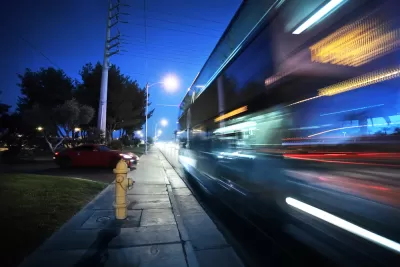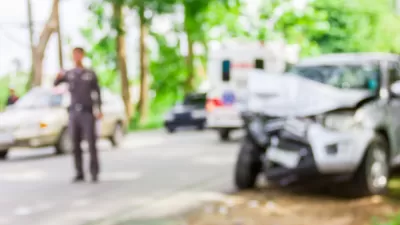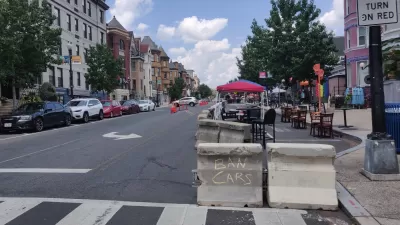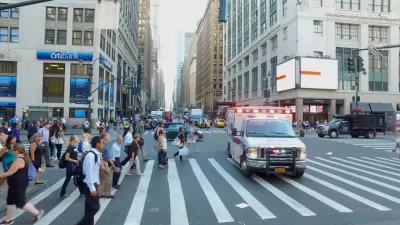The public health epidemic created by dangerous roads, dangerous cars, and dangerous drivers was exacerbated by the COVID-19 pandemic, according to recent data from the National Highway Traffic Safety Administration.

Alissa Walker reports:
An estimated 38,680 people were killed on U.S. roadways in 2020, the National Highway Traffic Safety Administration (NHTSA) confirmed today. This is not just a 7 percent increase from the previous year — it’s the highest number recorded since 2007, it comes after years of (modest) declines, and it happened even as Americans drove 13 percent fewer miles than they had the year before.
The latest data serves as confirmation of preliminary data as well as observations from throughout the pandemic about increasing levels of reckless driving on the relatively empty roads during the pandemic.
Traffic fatalities were up for occupants of passenger vehicles, pedestrians, motorcyclists, and people on bikes. Traffic fatalities were also up according to a litany of metrics like "occupant ejection," on urban interstates, on rural local and collector roads, at night, on the weekend, and due to alcohol, among other measures, according to a press release announcing the new traffic safety data.
That press release includes a soundbite from the acting director of the NHTSA, Steven Cliff, saying that safety is the top priority of the U.S. Department of Transportation. "We intend to use all available tools to reverse these trends and reduce traffic fatalities and injuries,” says Cliff.
According to Walker, the grim statistics are followed by the potential for unprecedented traffic safety reforms at the state level in New York. "For the first time in history, comprehensive and meaningful reform is being proposed in New York State, as a coalition of traffic-safety advocates are supporting eight bills before legislators, including proposed laws that would tighten blood-alcohol limits, allow speed cameras to operate day and night, and create a first-of-its-kind pedestrian-safety rating system for SUVs."
FULL STORY: Traffic Deaths in 2020 Soared to Highest in 13 Years

Montreal Mall to Become 6,000 Housing Units
Place Versailles will be transformed into a mixed-use complex over the next 25 years.

Planetizen Federal Action Tracker
A weekly monitor of how Trump’s orders and actions are impacting planners and planning in America.

DARTSpace Platform Streamlines Dallas TOD Application Process
The Dallas transit agency hopes a shorter permitting timeline will boost transit-oriented development around rail stations.

Study: 4% of Truckers Lack a Valid Commercial License
Over 56% of inspected trucks had other violations.

Chicago Judge Orders Thousands of Accessible Ped Signals
Only 3% of the city's crossing signals are currently accessible to blind pedestrians.

Philadelphia Swaps Car Lanes for Bikeways in Unanimous Vote
The project will transform one of the handful of streets responsible for 80% of the city’s major crashes.
Urban Design for Planners 1: Software Tools
This six-course series explores essential urban design concepts using open source software and equips planners with the tools they need to participate fully in the urban design process.
Planning for Universal Design
Learn the tools for implementing Universal Design in planning regulations.
City of Mt Shasta
City of Camden Redevelopment Agency
City of Astoria
Transportation Research & Education Center (TREC) at Portland State University
US High Speed Rail Association
City of Camden Redevelopment Agency
Municipality of Princeton (NJ)





























